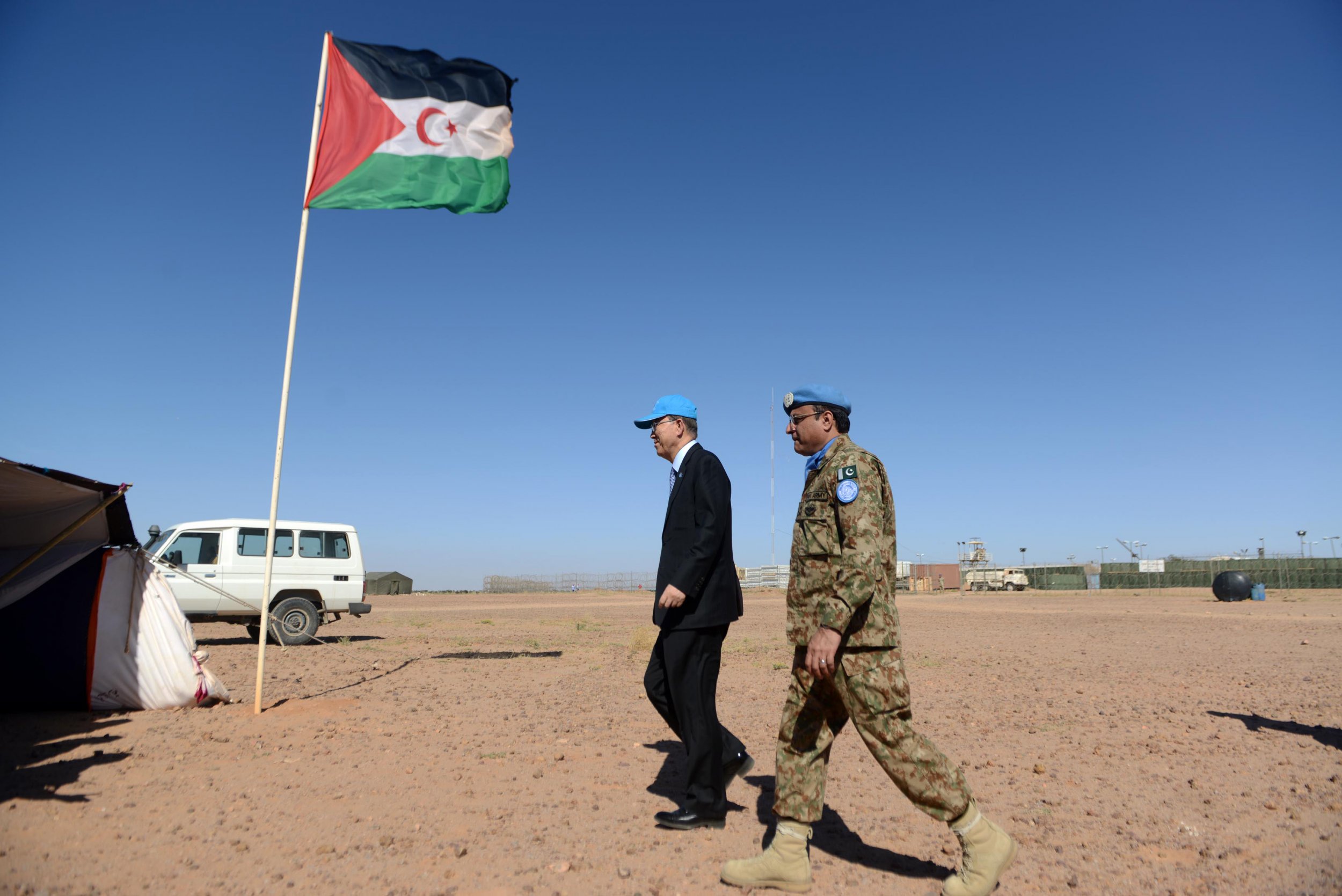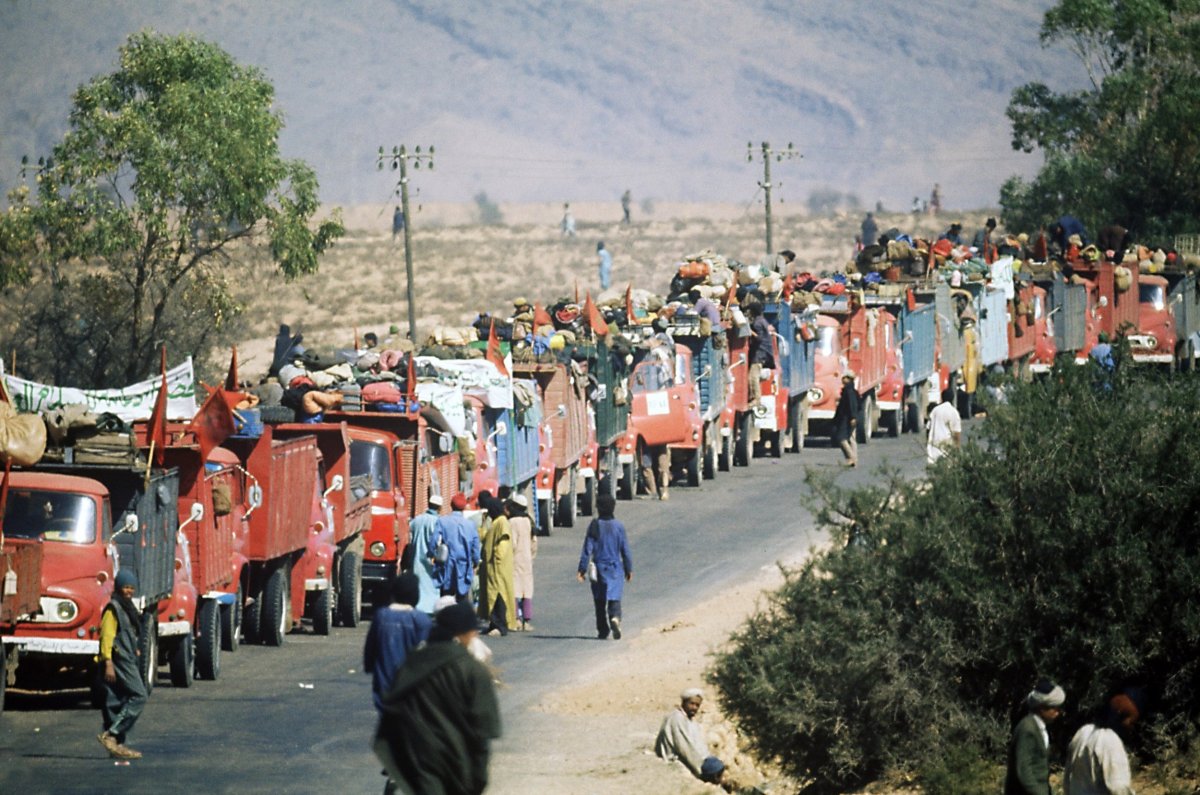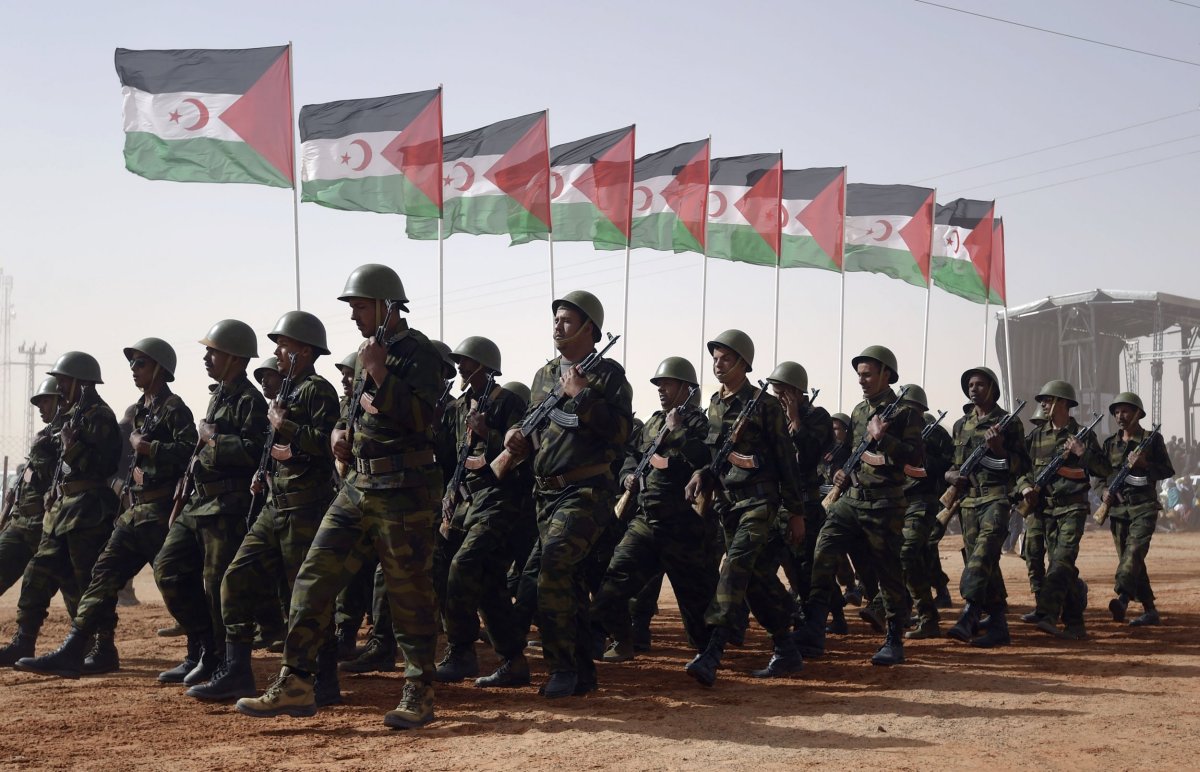
A recent visit by the U.N. Secretary General Ban Ki-moon to refugee camps for people displaced by the Western Sahara conflict has stirred up tensions in the 40-year dispute.
The Moroccan government lashed out at Ban, whom they accused of dropping the U.N.'s avowed neutrality in the dispute over the North African territory, during the Secretary General's visit to refugee camps in Algeria. A variety of groups have been dragged into the long-running tensions, including the African Union (AU), the European Union and even Swedish furniture manufacturers IKEA.
Here, Newsweek explains who's involved in the dispute, which has created thousands of refugees in one of the world's harshest environments and was referred to by Ban as "one of the forgotten humanitarian tragedies of our times."
What is Western Sahara?
Roughly the size of the U.S. state of Colorado, Western Sahara is a region on North Africa's Atlantic coast bordering Morocco, Algeria and Mauritania. It was colonized by Spain in 1884 and remained part of the Spanish kingdom for more than a hundred years. An arid region where less than one-fifth of the land is used for agriculture, Western Sahara is home to phosphate and iron ore reserves and is believed to have untouched offshore oil deposits. The native population—which numbers around 570,000—are known as Sahrawis and the majority religion is Islam.
Who is fighting over Western Sahara?
On one side, Morocco; on the other, an indigenous Sahrawi movement and Algeria by proxy. In 1975, Morocco effectively annexed Western Sahara by staging the Green March—a peaceful procession of 350,000 Moroccans who walked into the region and claimed it as their own. Spain subsequently transferred control of the region to Morocco and Mauritania.

As a result, the Polisario Front—a Sahrawi movement founded in 1973 to campaign for the independence of Western Sahara—launched a guerrilla struggle against what it saw as the Moroccan-Mauritanian occupation of its indigenous land. The conflict lasted until a U.N.-brokered ceasefire was agreed in 1991 and resulted in the displacement of thousands of Sahrawis into refugee camps across the Algerian border in Tindouf, where they remain to this day: The U.N. Refugee Agency estimates 90,000 people are living in the camps, while the Algerian government puts it at 165,000. During the struggle, Mauritania renounced its claim to the region and Moroccan authorities gradually built a wall through the territory, annexing two-thirds of the country and leaving a dangerous no-man's land between the two that is now patrolled by a U.N. monitoring force.
What does the rest of the world think?
Within Africa, the independence of Western Sahara—or what is known as the Sahrawi Arab Democratic Republic (SADR), according to the Polisario Front—is widely acknowledged. The status is recognized by Africa's two political giants, South Africa and Nigeria, and the African Union (AU) sent a delegation to celebrations at the Tindouf camps in March marking the 40th anniversary of the Republic's declaration in 1976. The AU's stance is contentious for Morocco, which withdrew from the AU's predecessor the Organization of African Unity in 1984 over the Western Sahara dispute and is currently the only African country that voluntarily refuses to join the union.
A recent dispute between the EU and Morocco also highlighted the growing support for Western Sahara's independence. Morocco recently announced it was suspending contact with EU institutions after the EU's General Court—the second-highest EU tribunal—ruled that a trade pact between Morocco and the EU should not apply to products from Western Sahara.
Another such incident occurred in September 2015, when Morocco blocked the expansion of IKEA into its territory, reportedly because of Sweden's position on Western Sahara. The Swedish parliament voted to recognize the SADR in 2011, though the Swedish government told Newsweek in September 2015 that Sweden's stance on the territory was under review.

Why is Morocco upset with Ban Ki-moon?
Morocco issued a riposte after accusing Ban of referring to Western Sahara as "occupied" during his recent visit to refugees in Tindouf, although the term was not recorded in Ban's official remarks. The Moroccan government said that Ban had "dropped his neutrality and impartiality" and showed a "guilty indulgence with a puppet state without attributes, territory, population nor a recognized flag," according to Reuters. The Polisario Front was boosted by Ban's visit and his pledge to drum up international support for the plight of Sahrawi refugees, with Mohamed Limam Mohamed Ali, the Polisario Front's representative in London, saying that Ban's visit had given "reason for optimism."
How can the dispute be resolved?
Morocco wants Western Sahara to remain as an autonomous, self-governing part of its territory, in a fashion similar to the autonomous communities in Spain. The Polisario Front, backed by Algeria, demands a referendum on the region's independence, which the U.N.'s mission in the region is ostensibly aimed at facilitating. But with negligible progress made since the ceasefire in 1991, it appears that one of the world's most intractable and neglected disputes may continue to rumble on.
Uncommon Knowledge
Newsweek is committed to challenging conventional wisdom and finding connections in the search for common ground.
Newsweek is committed to challenging conventional wisdom and finding connections in the search for common ground.
About the writer
Conor is a staff writer for Newsweek covering Africa, with a focus on Nigeria, security and conflict.
To read how Newsweek uses AI as a newsroom tool, Click here.








